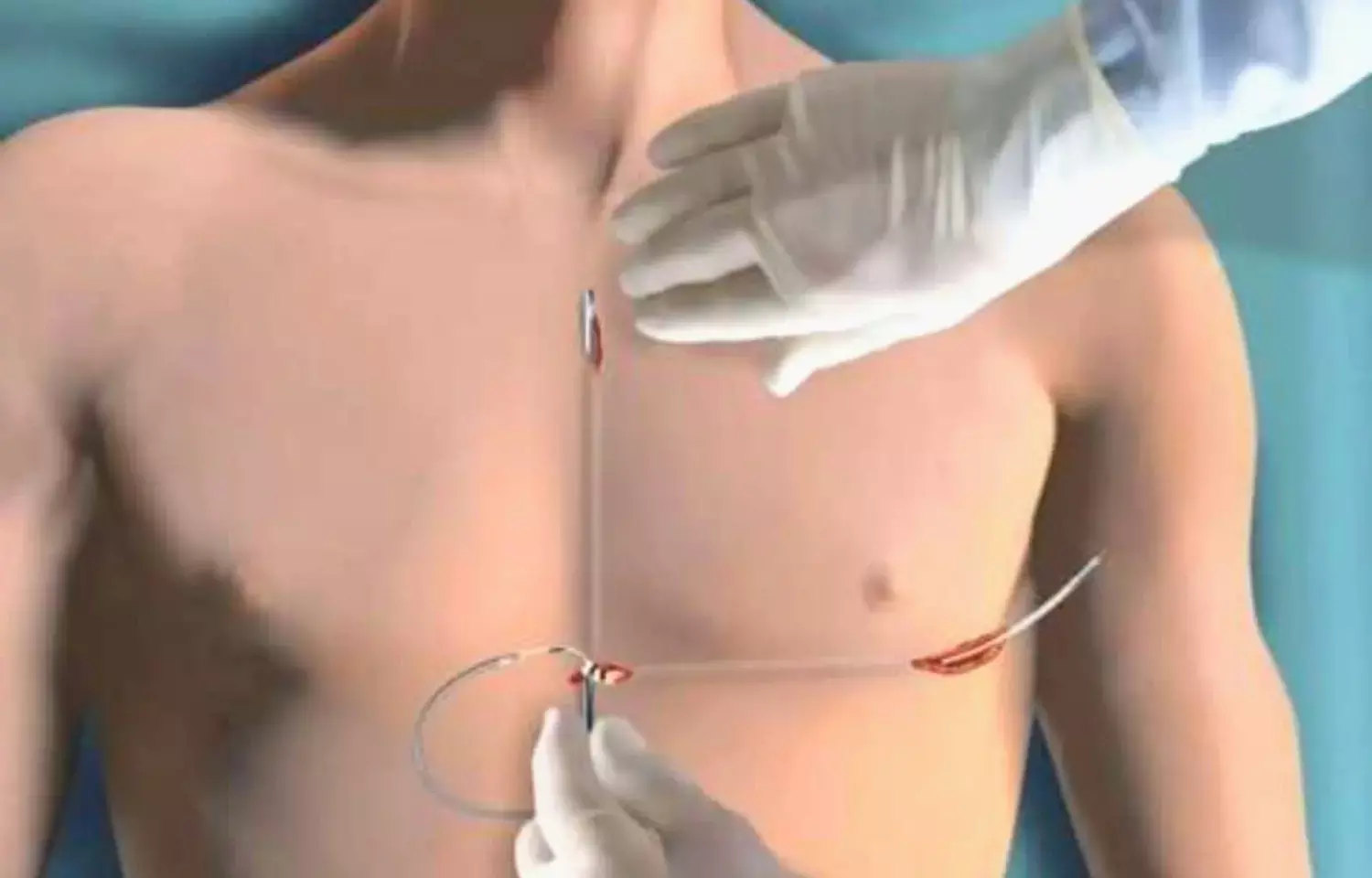- Home
- Medical news & Guidelines
- Anesthesiology
- Cardiology and CTVS
- Critical Care
- Dentistry
- Dermatology
- Diabetes and Endocrinology
- ENT
- Gastroenterology
- Medicine
- Nephrology
- Neurology
- Obstretics-Gynaecology
- Oncology
- Ophthalmology
- Orthopaedics
- Pediatrics-Neonatology
- Psychiatry
- Pulmonology
- Radiology
- Surgery
- Urology
- Laboratory Medicine
- Diet
- Nursing
- Paramedical
- Physiotherapy
- Health news
- Fact Check
- Bone Health Fact Check
- Brain Health Fact Check
- Cancer Related Fact Check
- Child Care Fact Check
- Dental and oral health fact check
- Diabetes and metabolic health fact check
- Diet and Nutrition Fact Check
- Eye and ENT Care Fact Check
- Fitness fact check
- Gut health fact check
- Heart health fact check
- Kidney health fact check
- Medical education fact check
- Men's health fact check
- Respiratory fact check
- Skin and hair care fact check
- Vaccine and Immunization fact check
- Women's health fact check
- AYUSH
- State News
- Andaman and Nicobar Islands
- Andhra Pradesh
- Arunachal Pradesh
- Assam
- Bihar
- Chandigarh
- Chattisgarh
- Dadra and Nagar Haveli
- Daman and Diu
- Delhi
- Goa
- Gujarat
- Haryana
- Himachal Pradesh
- Jammu & Kashmir
- Jharkhand
- Karnataka
- Kerala
- Ladakh
- Lakshadweep
- Madhya Pradesh
- Maharashtra
- Manipur
- Meghalaya
- Mizoram
- Nagaland
- Odisha
- Puducherry
- Punjab
- Rajasthan
- Sikkim
- Tamil Nadu
- Telangana
- Tripura
- Uttar Pradesh
- Uttrakhand
- West Bengal
- Medical Education
- Industry
MRI can be performed safely in patients with selected implantable cardiac devices

Non-MRI conditional implantable cardioverter-defibrillators (ICDs) are able to appropriately detect and treat tachyarrhythmias after MRI, and no serious adverse effects on device function were observed. The findings were published in the Annals of Internal Medicine.
Joshua Ra and peers aimed to investigate whether non-MRI conditional ICDs have preserved shock function of arrhythmias after MRI. The study included 629 patients with non-MRI conditional ICDs enrolled consecutively between February 2003 and January 2015, who underwent MRI examinations in a 1.5 Tesla using a prespecified safety protocol. Clinical outcomes, including arrhythmia detection and treatment, generator or lead exchanges, adverse events, and death, were assessed through ICD interrogations after MRI. The median follow-up was 2.2 years from MRI to the latest available ICD interrogation before generator or lead exchange in 536 patients.
The key findings of this study were:
During the follow-up period, 4177 arrhythmia episodes were detected, and 97 patients received ICD shocks. Of these, 61 patients (10% of the total) had 130 spontaneous ventricular tachycardia or fibrillation events terminated by ICD shocks.
Among the 210 patients known to have died (33% of the total), three had cardiac arrhythmia deaths where shocks were indicated without direct evidence of device dysfunction. No serious adverse effects on device function were reported after MRI.
The findings of this study suggest that .
These results are consistent with previous studies that have shown that MRI does not have clinically important effects on the device parameters of non-MRI-conditional ICDs. However, it is important to note that the study was conducted in a single center, and larger multicenter studies are needed to confirm these findings.
Reference:
Ra, J., Oberdier, M. T., Suzuki, M., Vaidya, D., Liu, Y., Hansford, R., McVeigh, D., Weltin, V., Tao, S., Thiemann, D. R., Nazarian, S., & Halperin, H. R. (2023). Implantable Defibrillator System Shock Function, Mortality, and Cause of Death After Magnetic Resonance Imaging. In Annals of Internal Medicine. American College of Physicians. https://doi.org/10.7326/m22-2653
Neuroscience Masters graduate
Jacinthlyn Sylvia, a Neuroscience Master's graduate from Chennai has worked extensively in deciphering the neurobiology of cognition and motor control in aging. She also has spread-out exposure to Neurosurgery from her Bachelor’s. She is currently involved in active Neuro-Oncology research. She is an upcoming neuroscientist with a fiery passion for writing. Her news cover at Medical Dialogues feature recent discoveries and updates from the healthcare and biomedical research fields. She can be reached at editorial@medicaldialogues.in
Dr Kamal Kant Kohli-MBBS, DTCD- a chest specialist with more than 30 years of practice and a flair for writing clinical articles, Dr Kamal Kant Kohli joined Medical Dialogues as a Chief Editor of Medical News. Besides writing articles, as an editor, he proofreads and verifies all the medical content published on Medical Dialogues including those coming from journals, studies,medical conferences,guidelines etc. Email: drkohli@medicaldialogues.in. Contact no. 011-43720751


